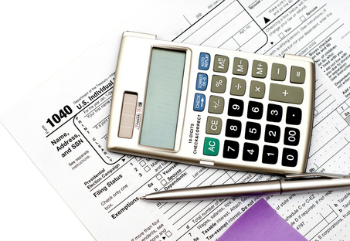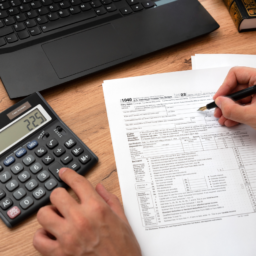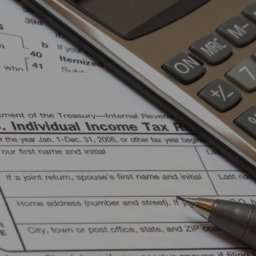Besides criminal tax exposure, penalties, and interest, the US District Court, Northern District of California gave another reason to file unfiled tax returns. The Court held that a taxpayer’s late filed return was not a return for bankruptcy law purposes and thus non-dischargeable.
 In 2001, a taxpayer failed to file his income tax return. The IRS utilized third party information to prepare the taxpayer’s 2001 tax return. An IRS prepared return is known as a Substitute for Return (SFR). On March 27, 2006, the IRS mailed the taxpayer a statutory notice of deficiency for the 2001 tax year proposing back taxes of $70,662. The taxpayer did not file a Tax Court petition to challenge the IRS’s assessment. On July 31, 2006, the IRS assessed $70,662 and began collection activity (i.e. tax garnishment, levy, etc.) On May 22, 2009, the taxpayer submitted an original 2001 return and subsequently filed a Chapter 7 bankruptcy petition. The bankruptcy court issued a discharge order on May 11, 2012 and the IRS appealed.
In 2001, a taxpayer failed to file his income tax return. The IRS utilized third party information to prepare the taxpayer’s 2001 tax return. An IRS prepared return is known as a Substitute for Return (SFR). On March 27, 2006, the IRS mailed the taxpayer a statutory notice of deficiency for the 2001 tax year proposing back taxes of $70,662. The taxpayer did not file a Tax Court petition to challenge the IRS’s assessment. On July 31, 2006, the IRS assessed $70,662 and began collection activity (i.e. tax garnishment, levy, etc.) On May 22, 2009, the taxpayer submitted an original 2001 return and subsequently filed a Chapter 7 bankruptcy petition. The bankruptcy court issued a discharge order on May 11, 2012 and the IRS appealed.
The question before the Court was whether the taxpayer’s original, late return constituted a “return” for tax discharge purposes.
Generally speaking, filing bankruptcy allows a debtor to discharge personal liability for all debts incurred prior to the filing of a bankruptcy petition, including unpaid taxes. Section 523(a)(1) sets forth the exceptions to discharging tax debt. Section 523(a)(1) states that bankruptcy does not discharge taxes if a required return was not filed or was filed or given after the date on which such return was due and after two years before the date of the filing of the petition.
The Court noted that the US Tax Code does not define a tax return. The Court reviewed Beard v. Commissioner (Beard) which is the seminal case defining a tax return. In Beard, the Court held that a return is based on the following four elements: 1) there must be sufficient data to calculate tax liability; 2) the document must purport to be a return; 3) there must be reasonable attempts to satisfy the requirements of the tax law; and 4) the taxpayer must execute the return under penalties of perjury.
In 2005, Congress passed the The Bankruptcy Abuse Prevention and Consumer Protection Act of 2005 (BAPCPA). Under BAPCPA, Congress added the inclusion of an unnumbered paragraph, known as the “hanging paragraph”, which defined a return as one that satisfies the requirements of applicable nonbankruptcy law. The unnumbered paragraph goes on to state that “such term includes a return prepared pursuant to section 6020(a) of the Internal Revenue Code of 1986, or similar State or local law, or a written stipulation to a judgment or a final order entered by a nonbankruptcy tribunal, but does not include a return made pursuant to section 6020(b) of the Internal Revenue Code of 1986, or a similar State or local law.”
Thus bankruptcy code under 523(a)(19)(B) distinguishes between the 6020(a) vs. 6020(b). If a taxpayer fails to file a return, then the IRS can prepare a return known as a substitute for return (SFR). Under 6020(a), if the taxpayer fails to file a return, then the IRS may prepare the return which, if signed by the taxpayer under the penalty of perjury, would count as a tax return. Under 6020(b), the government executes a return which is not signed under the penalties of perjury by the taxpayer.
The Court concluded that the hanging paragraph does not undermine the four-factor test of Beard. The Court went on to state that “consistent with the Tax Code’s standards for a “return,” as stated in Beard and the Ninth Circuit’s decision in Hatton, the meaning of “return” must take into account the late-filers’ evidence of a good faith attempt to comply with the tax laws.” The Court held that a return filed after the IRS had filed prepared an SFR was not an honest and reasonable attempt to comply with the tax laws and thus failed the third prong of the Beard test. Therefore, the Court found that a taxpayer’s late return was not a return for bankruptcy law purposes and the taxpayer’s liability was not dischargeable.
If you have not filed your 2013 tax return or have years of unfiled tax return, then the Law Offices of Todd S. Unger, Esq. LLC can help. Todd Unger is a tax attorney whose practice is devoted to resolving sensitive tax matters before the IRS and NJ Division of Taxation. Delaying the filing of your delinquent tax returns can result in tax penalties, criminal tax exposure, the failure to stop IRS enforcement action, and the inability to discharge your taxes in bankruptcy. The time is now to develop and execute a tax resolution strategy and tax lawyer Todd Unger can help. Call or email Todd Unger today (877) 544-4743.



